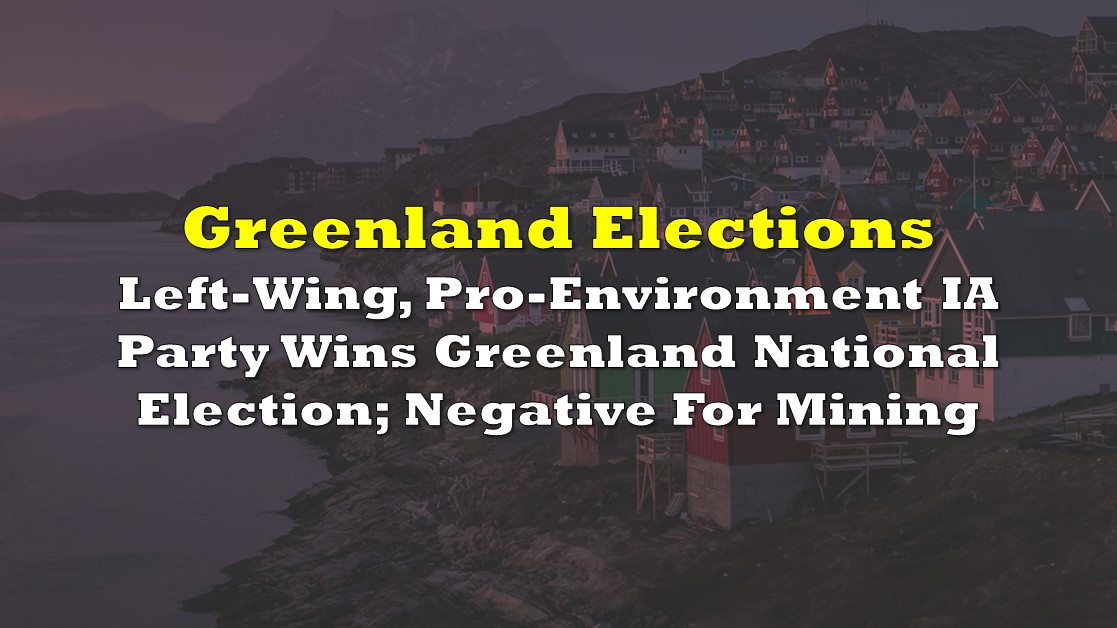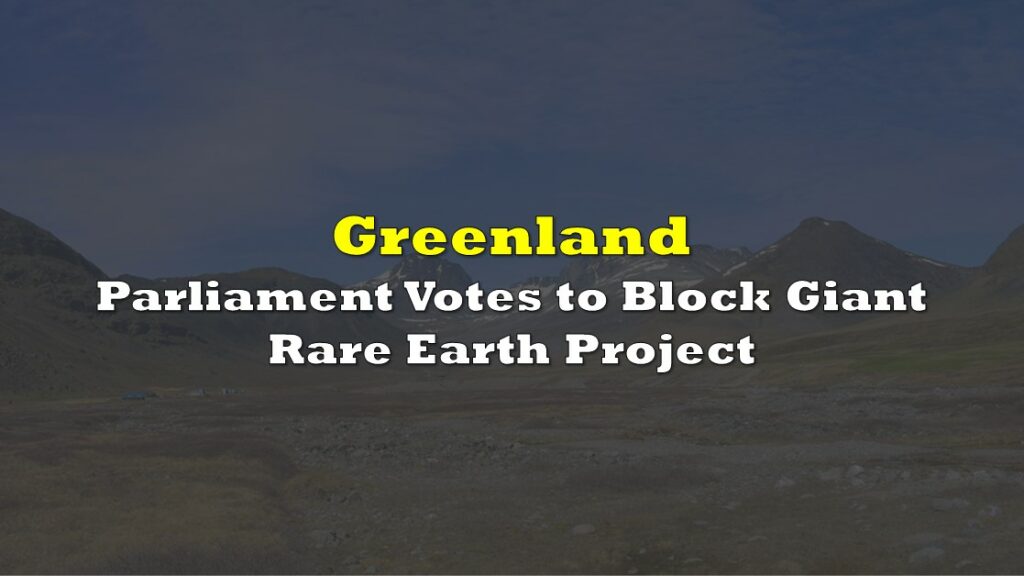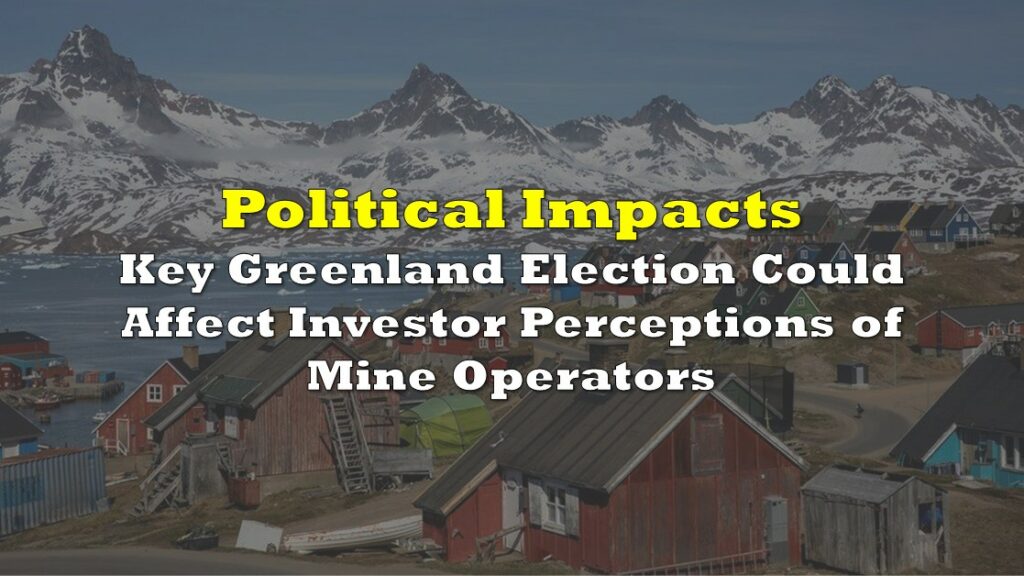In a snap parliamentary election on April 6, Greenland’s left-leaning, pro-environment Inuit Ataqatigiit (IA) Party won the largest percentage of the vote, 37%, and secured 12 of the 31 seats in the Greenlandic National Assembly. Greenland has about 40,000 eligible voters. The ruling center-left Siumut Party, which has controlled politics in that country for many years, received 29% of the popular vote and will hold 10 seats in the new parliament. The IA Party, led by 34 year-old Mute Egede, is likely to seek to form a coalition government with a group of smaller parties rather than Siumut. A potential ally could be the pro-environment Naleraq Party.
In the previous general election held in 2018, Siumit won nine seats in parliament and the IA Party eight, so this election represented a net swing of three seats, or almost 10% of the body’s 31 total positions.

The key issue in the election was the fate of the Kvanefjeld rare earth and uranium open pit mining project. Kvanefjeld could potentially contain the largest deposit of rare earth minerals outside China. The mine’s owner, Greenland Minerals Limited (ASX: GGG), has been trying for more than 10 years to bring it back into full operation. Shenghe Resources, a large Chinese rare earths company, owns about 10% of Greenland Minerals.
It would appear the project will not be permitted to go forward. Mr. Egede issued the following statement to Greenland’s public broadcast network KNR: “We must listen to the voters who are worried. We say no to uranium mining.” The Siumut Party supported Kvanefjeld, saying it would help diversify Greenland’s fishing-based economy and allow it to become more independent from Denmark. Greenland gained home rule from Denmark in 1979, but subsidies from Denmark still cover about a third of Greenland’s budget.
Greenland Minerals will be impacted by these voting results. Other companies with existing Greenland mining operations like Hudson Resources Inc. (TSXV: HUD) could likewise be negatively affected, as investor confidence in how the government will treat the mining industry could be shaken. Hudson Minerals stock has declined around 15% since February 16, the date the snap parliamentary election was announced.
A pre-revenue mining and exploration company with a sole focus on Greenland, Hudson Resources owns 31% of the White Mountain anorthosite (calcium feldspar) mine. A key use for anorthosite is a replacement for kaolin, a clay mineral, in the production of E-glass fiberglass. Anorthosite also can be used in place of kaolin in paints, coatings and polymers. Hudson also owns 100% of the Sarfartoq carbonatite exploration project which contains the valuable rare earth element neodymium and a high-grade niobium project.
Hudson Resources trades at $0.22 on the TSX Venture Exchange, and Greenland Minerals trades at A$0.08 on the ASX Exchange.
Information for this briefing was found via Sedar and the companies mentioned. The author has no securities or affiliations related to this organization. Not a recommendation to buy or sell. Always do additional research and consult a professional before purchasing a security. The author holds no licenses.






